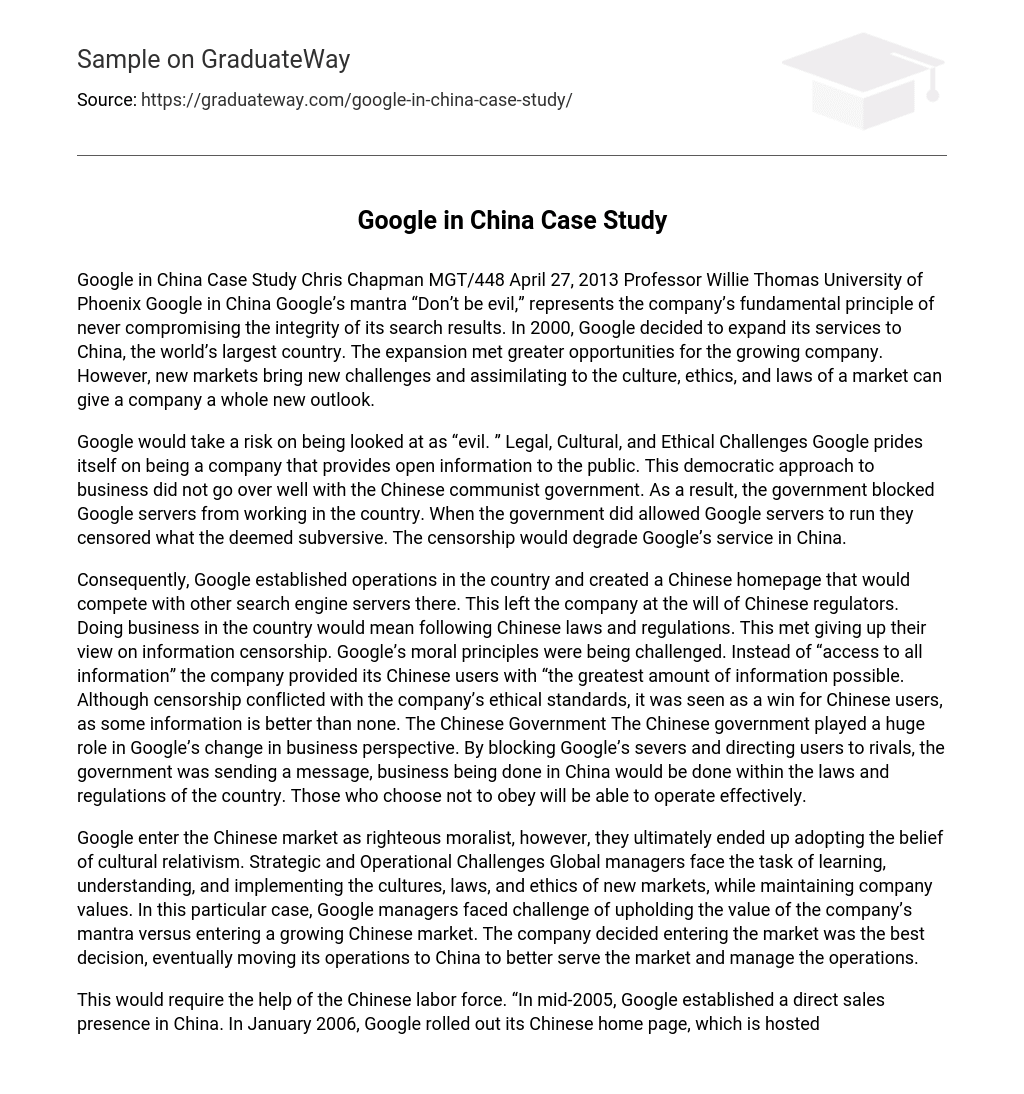Google’s mantra “Don’t be evil,” represents the company’s fundamental principle of never compromising the integrity of its search results. In 2000, Google decided to expand its services to China, the world’s largest country. The expansion met greater opportunities for the growing company. However, new markets bring new challenges and assimilating to the culture, ethics, and laws of a market can give a company a whole new outlook.
Google would take a risk on being looked at as “evil. ” Legal, Cultural, and Ethical Challenges Google prides itself on being a company that provides open information to the public. This democratic approach to business did not go over well with the Chinese communist government. As a result, the government blocked Google servers from working in the country. When the government did allowed Google servers to run they censored what the deemed subversive. The censorship would degrade Google’s service in China.
Consequently, Google established operations in the country and created a Chinese homepage that would compete with other search engine servers there. This left the company at the will of Chinese regulators. Doing business in the country would mean following Chinese laws and regulations. This met giving up their view on information censorship. Google’s moral principles were being challenged. Instead of “access to all information” the company provided its Chinese users with “the greatest amount of information possible. Although censorship conflicted with the company’s ethical standards, it was seen as a win for Chinese users, as some information is better than none.
The Chinese Government The Chinese government played a huge role in Google’s change in business perspective. By blocking Google’s severs and directing users to rivals, the government was sending a message, business being done in China would be done within the laws and regulations of the country. Those who choose not to obey will be able to operate effectively.
Google enter the Chinese market as righteous moralist, however, they ultimately ended up adopting the belief of cultural relativism. Strategic and Operational Challenges Global managers face the task of learning, understanding, and implementing the cultures, laws, and ethics of new markets, while maintaining company values. In this particular case, Google managers faced challenge of upholding the value of the company’s mantra versus entering a growing Chinese market. The company decided entering the market was the best decision, eventually moving its operations to China to better serve the market and manage the operations.
This would require the help of the Chinese labor force. “In mid-2005, Google established a direct sales presence in China. In January 2006, Google rolled out its Chinese home page, which is hosted on servers based in China and maintained by Chinese employees in Beijing and Shanghai” (Hill, 2009). In the end, Google managers did what they thought was best for the company… and the people of China. Conclusion Understanding the laws, ethics, and cultures of countries abroad is important in today’s global economy.
Companies do not have to be “evil” when it comes to doing business in a foreign country. However, they do have to be flexible. Laws, ethics, and cultures vary from country to country. In order to have a presence in China, Google managers needed an open mind. This met limiting the information they provided for the minds of others. When in China, do as the Chinese government.
References
- Hill, C. (2009). International Business: Competing in the Global Marketplace, (7th ed. ). New York, New York: McGraw-Hill Companies Inc.





